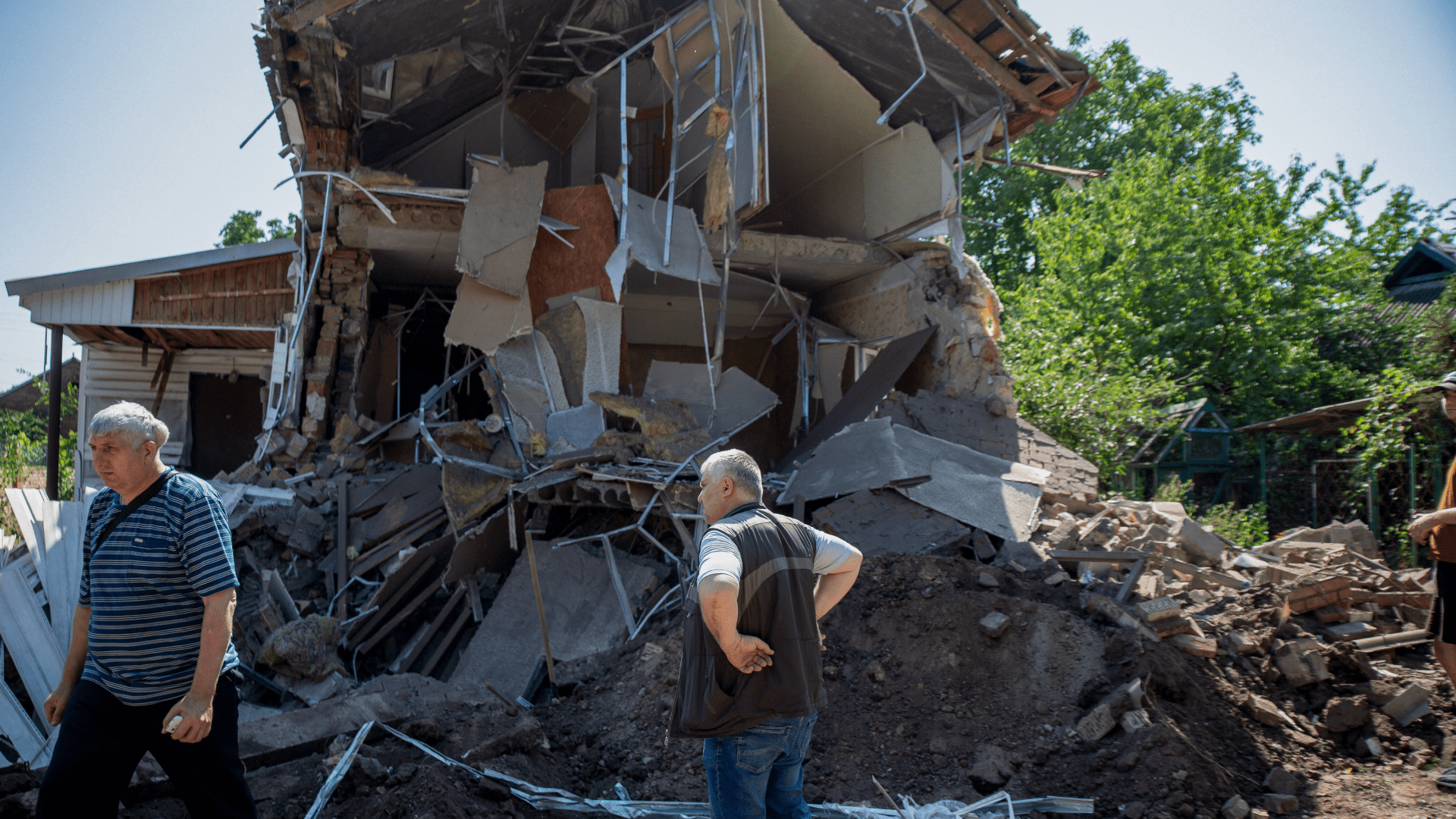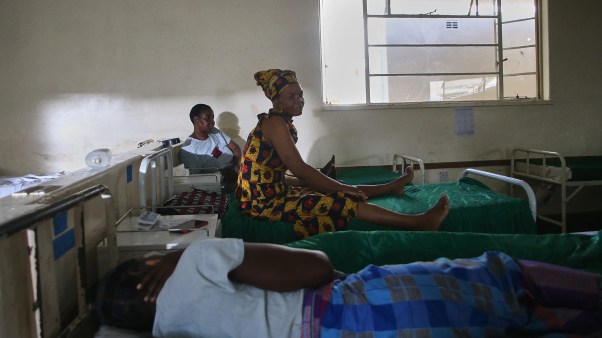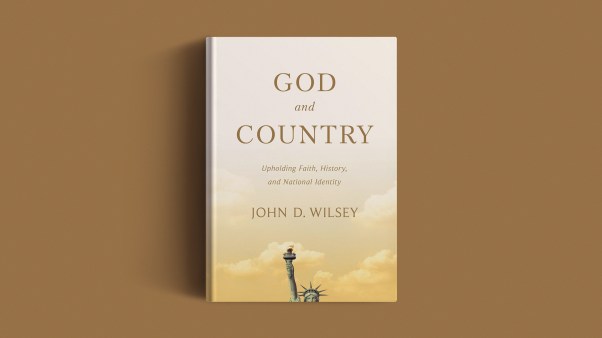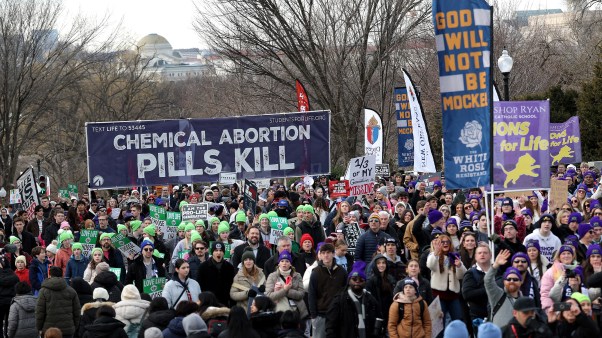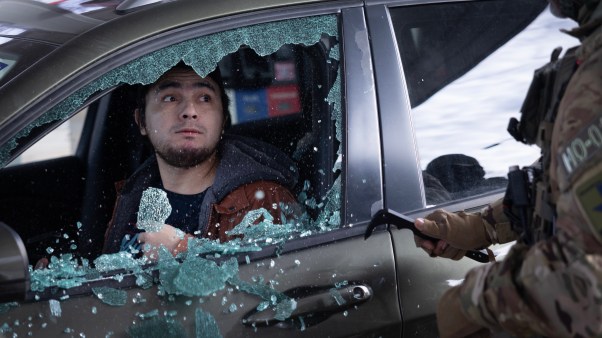Ukraine sent its largest-ever delegation to Washington, DC, last week to rally support for more military defense and plead with Donald Trump not to pull the plug and make a deal that favors Russia. Pastors and religious leaders in the delegation fear that time is running out.
“We know that President Trump is working on the new negotiations to help bring this war to an end,” said Igor Bandura, vice president of the Baptist Union of Ukraine. “We are here to pray, to advocate, to share our experience, and to remind the American people and American politicians that we are looking not just to end the war, but we need a just peace.”
American conservative and evangelical support for Ukraine has waned as the war has gone on and the Republican Party under Trump has grown increasingly skeptical of international alliances. Past efforts to shore up support for Ukraine among Republicans have yielded results, though, so the delegation remained hopeful, despite deep concerns.
The delegation included nearly 200 Ukrainian pastors, priests, politicians, and wounded soldiers. They traveled by train and car across Ukraine’s border with Poland last week to catch international flights, since airports in Ukraine have been shut down for three years. Hundreds more Ukrainians who live in the US crossed the country to join the delegation at events in Washington throughout the week.
Some of them attended the International Religious Freedom (IRF) summit and listened to Vice President JD Vance, who has adamantly opposed continued military aid. He didn’t directly speak to the looming US-led negotiations or explain why anyone should believe Trump’s claims he can swiftly end the war.
But Vance did address the issue of religious liberty, which Ukrainian Christians think should be a critical factor for Americans questioning their support for Ukraine.
“Part of our protecting religious-freedom initiatives means recognizing, in our foreign policy, the difference between regimes that respect religious freedom and those that do not,” the vice president told the crowd. “The United States must be able to make that distinction.”
The authors of Mission Eurasia’s latest report on Christian persecution strongly agree. They hope their presentations throughout the week convinced American leaders there is a clear distinction between Ukraine and Russia on this point.
According to their report, which they shared with the US State Department and people attending the IRF summit, at least 47 religious leaders have been killed as a result of Russia’s invasion. More than 600 churches and religious buildings have been damaged. Russia expels pastors from the territory it controls and shuts down churches that aren’t Russian Orthodox.
“Russians call us American agents, American spies, because we have a lot of Christian believers, brothers and sisters, here in the American Bible Belt,” said Pavlo Unguryan, a Ukrainian Baptist leader and a member of the delegation who has met with House Speaker Mike Johnson several times.
The fate of the war will matter a lot for religious liberty, according to delegation members. If America wants to stand against religious persecution, according to Baptist World Alliance leader Elijah Brown, it needs to stand with Ukraine.
The future freedom of Ukraine may also determine whether people in Europe get to hear about Jesus. The country has more than 2,000 Baptist churches, Brown said, that would be threatened or at least limited by a Russian victory.
“Prior to the war, they were the fastest-growing Baptist communities in all of Europe,” Brown told Christianity Today. “They’re at the heartbeat of gospel witness across Europe.”
Delegation members also spoke of the horrors of the war and the tragic personal costs. Some, like Yaroslav Bazylevych, barely escaped death.
Five months ago, he said in a documentary shown in Washington, a Russian missile hit his home in L’viv, a city in Western Ukraine that was more than 500 miles away from the frontlines. Bazylevych’s wife and three daughters, ages 7, 18, and 21, ducked into a stairwell for safety.
But the stairway collapsed in the strike, and Bazylevych lost his entire family. They are 4 of the more than 12,000 civilians who have died in Russian attacks in the three years since the full-scale war began.
“I would like Ukraine to receive a lot of help from Americans in order to overcome the Russian aggression,” Bazylevych said.
Members of the delegation told CT they were not opposed to a peace plan. In fact, some hope Trump will be successful at negotiating a deal to end the fighting. But they want a good deal and a good plan.
“For us, refugees from the Russian-occupied territories, a good plan is a fair plan,” said Mykhailo Brytsyn, a pastor who was expelled from his city by Russian troops. “ A fair plan is when Russia withdraws its troops from all occupied territories of Ukraine.”
Former Ukrainian president Petro Poroshenko, who plans to run for president again when the war is over, told CT he wants Trump to be decisive and believes he can make a real difference if he negotiates well.
Poroshenko said he wanted to tell Trump that “we really count on you and we really trust you. … Your slogan, ‘peace through strength,’ is exactly what Ukraine now needs, and exactly what Russia now needs, and is exactly what the free and democratic world needs.”
But the American president has not seemed especially interested in Ukrainian strength. Nor has he appeared to be moved by stories of religious persecution and oppression. Last week he commented that Ukraine could be surrendered to Russia but that the US might continue offering military support if there were some kind of financial arrangement.
In an interview on Fox News, Trump said he wants “the equivalent of like $500 billion worth of rare earth.” Ukrainian president Volodymyr Zelensky seems willing to accept that.
Ukrainian Christians, meanwhile, are praying, talking to leaders in Washington, and reminding themselves to trust God.
“As believers in Christ, we understand God controls history. He controls kings. He controls everything,” Baptist leader Pavlo Unguryan said. “So we are praying, we’re fighting, and we pray for wisdom for the new president and the new administration.”

